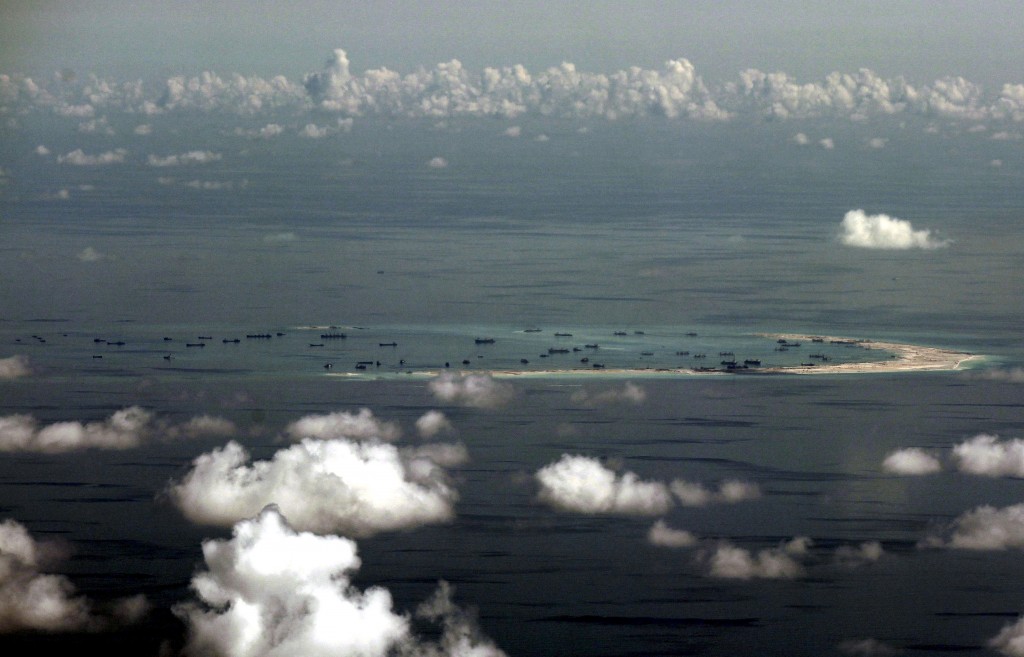China Is Beating Us on the World Stage -- And No One Noticed Until Now

The major media outlets have finally taken up addressing Chinese expansionism, with Secretary of State John Kerry's high-level talks on China's artificial reefs being built in the South China Sea.
The problem is: What are we going to do about it now that the reefs are already built?

It's not like the warning signs haven't been there for years. IVN has reported on Chinese expansionism for over a year at this point, including the changing paradigm of the Chinese military that the West has been reluctant to accept and the growing strategic activities in the South China Sea.
The U.S. government hasn't been wholly neglectful. President Obama strengthened military ties with the Philippines by re-opening a U.S. military base to have an advanced military presence in the South China Sea.
The U.S. Marines have also significantly increased troop concentration, troop training, and drills at their base in Northern Australia.
But from a diplomatic standpoint, we have already lost this battle with the Chinese. The reefs are built and they have dozens of ships working on them and/or guarding them. Unless we want to risk an outright military territorial dispute, the reefs are here to stay.
With permanent veto power at the U.N., it's unlikely the international community will be able to push back against China's territorial claims, outside of international court cases that are often ignored.
The only thing we can do is start addressing expansionism sooner, and we need to start addressing the underlying roots of this expansion. This will require a level of boldness in geographically "staking" our claims when it comes to trade and influence, while pushing back against the urges to entangle the United States and the Western Hemisphere at large with complicated, one-sided treaties that serve Chinese expansionism far greater than American trade.
Staking Our Geographic Spheres of Influence
Like it or not, former Secretary of State Colin Powell was correct when he told then-President G. W. Bush that if we went into Iraq, the Pottery Barn rule would apply, "You break it, you own it."
There are multiple calls from both sides of the aisle for a departure from American dominance and influence in the Middle East, but this will come at a significant geopolitical cost. The Chinese are all too willing to swoop in and fix, with a seemingly endless supply of capital, what we have broken.
Premier Li rides a newly-constructed subway in Brazil built by Chinese factories.
American's should be war weary, and we should be looking for answers in the Middle East to nation build and foster democratic ideals.
But if we allow the Chinese to swoop in at the last minute to play the role of hero, we will be stuck with a diplomatic and economic nightmare that could last a century. Not only would China have an unbroken line of trade geographically from China to Africa, they would establish themselves as the go-to nation building superpower.
Closer to home: Whatever happened to the Monroe Doctrine (and Roosevelt Corollary) that have guided our national policy making since 1823?
Chinese arms sales, troop exchanges, joint military exercises, naval deployments, permanently stationed troops, and military treaties have all become the standard in Latin and South America -- and this isn't even counting the large number of economic treaties created. This includes the inking of another $27 billion trade agreement with Brazil, the first stop on Premier Li's South American economic tour.
In American politics, we are caught between two camps: the growing isolationist movement and those wanting to take a greater role on the world stage. As with anything, balance is everything, but throwing away 192 years of American foreign policy cannot be the answer -- the Western Hemisphere is our sphere of influence.
What We Can't Do is Blind Reactionism
The Trans-Pacific Partnership (TPP) is a genuine, but misguided effort of twelve countries -- Australia, Brunei, Canada, Chile, Japan, Malaysia, Mexico, New Zealand, Peru, Singapore, the United States, and Vietnam -- to build a viable, Pacific trade partnership outside of China's immediate grasp.
For a time, China was seemingly uninterested in the TPP, countering with its own treaties with many of the individual nations involved. However, it started to express interest as early as 2013 in being a part of the negotiations as well.
The TPPmight be the best treaty America has ever tried to negotiate. But if the terms are so good, generous, and equitable, why not make the details public?
We need a greater role in the world stage, but it won't come from encumbering the American people with treaties that potentially strip our national sovereignty. But the unfortunate reality is that we have become a nation that doesn't export "hard assets" anymore. Yes, we are the world leaders in exporting medical technology and heavy transportation equipment, but our exports are largely products that are used by others to create value-added products (often exported back to the U.S.).
Part of any stable reaction to Chinese expansionism has to be policy-making that is nation building, not nation breaking, protecting our interests in the Western Hemisphere and having economic policies that turn America back into the leading exporter of products worldwide -- closing our $40-50 billion monthly trade gap.
Yesterday's News Can't Be Today's
The Chinese encroachment into the South China Sea, including artificial reef building, is last year's news -- hardly worthy of mention now that the deed is "done." We need to have a media and administration that is focusing on today's news, not last year's.
We are quickly becoming caught in a cycle of catch-up that we had better get out of quickly, because in the age of instantaneous information, we need to be addressing our foreign policy dilemmas as they happen -- not once they are reported on by the major news outlets!




